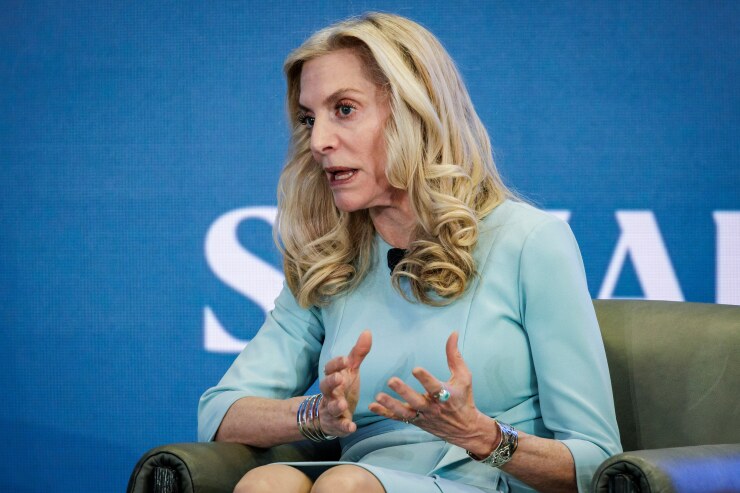
WASHINGTON —
Congress is gearing up for a major tax debate in 2025 with the expiration of the Trump tax cuts, the 2017 law that included cuts for individuals and that begins to phase out next year. While Republicans want to extend the tax breaks to individuals, doing so would add $4.6 trillion to the national debt over the next decade,
The Biden administration's plan, outlined in detail by Brainard in a speech at the Brookings Institution on Friday, would extend the middle-class tax cuts while raising taxes on the wealthiest Americans and on corporations.
Brainard called for increasing the corporate tax rate to 28%, a bump from the 21% enacted in the Trump tax package but lower than the 35% that existed previously. She also said that Biden would keep some of the limits on tax deductions for households earning more than $400,000 a year, including the $10,000-a-year limit on the amount of state and local taxes that higher earners could deduct from their federal income taxes.
"As the president has said, tax cuts for the wealthy will stay expired on his watch," she said.
She repeated Biden's calls that households earning less than $400,000 would not see any tax increases, something that's been called into question by former President Donald Trump on the campaign trail.
"The president is honoring his ironclad commitment to not raise taxes on anyone making less than $400,000 and will cut taxes further for workers and families, paid for by asking corporations and those at the top to contribute more," she said.
Brainard said that Biden's tax plan would raise the corporate buyback tax from 1% to 4% "to encourage corporations to invest in their workers and the broader economy, rather than payouts to investors."
Many of the higher taxes for corporations — most notably the corporate buyback tax — would have a large impact on bankers in particular. Regulators typically prefer that banks perform buybacks instead of higher dividends, due to banks' typical unwillingness to cut dividends and risk spooking the market.
While Biden's ideas for a tax package will have to be negotiated in Congress, a policy raising corporate taxes has a higher chance of gaining political momentum, depending on the results of the 2024 elections.
Lawmakers in general tend to be hesitant of raising taxes on the majority of individuals, and the right wing of the Republican party has historically made balancing the federal budget a hallmark of their political agenda. Something like a corporate buyback tax might be a compromise they're willing to accept to avoid growing the federal deficit or raising taxes on the bulk of their base.
The tax negotiations also offer a major opportunity for bank-related legislative riders. The Credit Card Competition Act, for example, sponsored by Sens. Dick Durbin, D-Ill., and Roger Marshall, R-Kan., would have a






